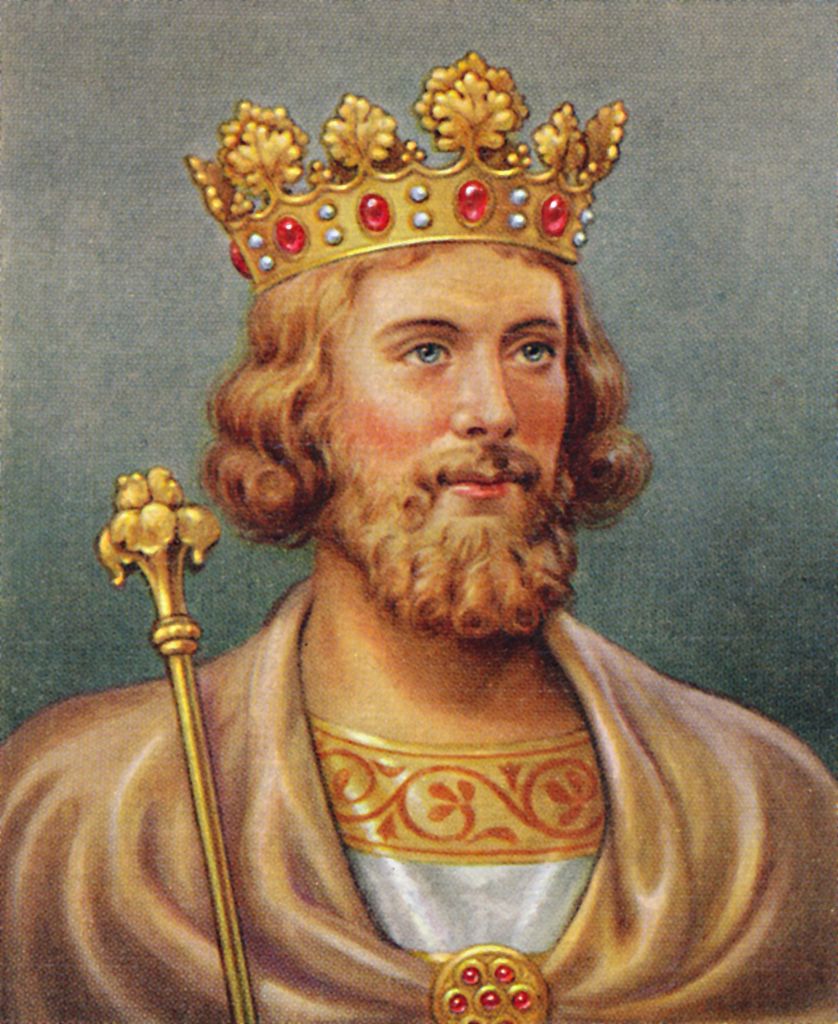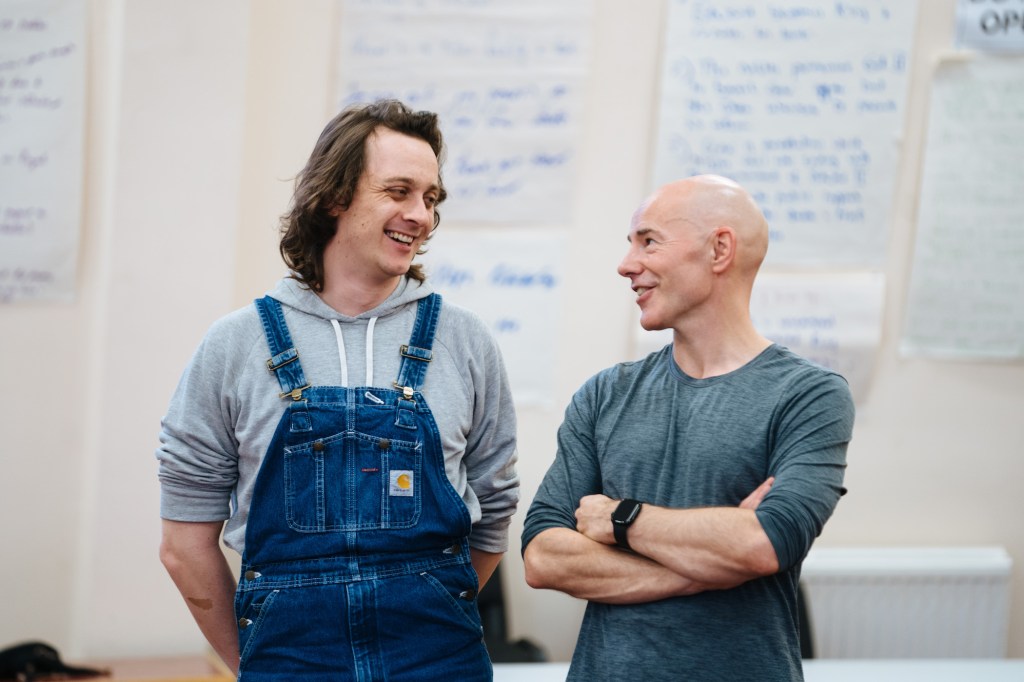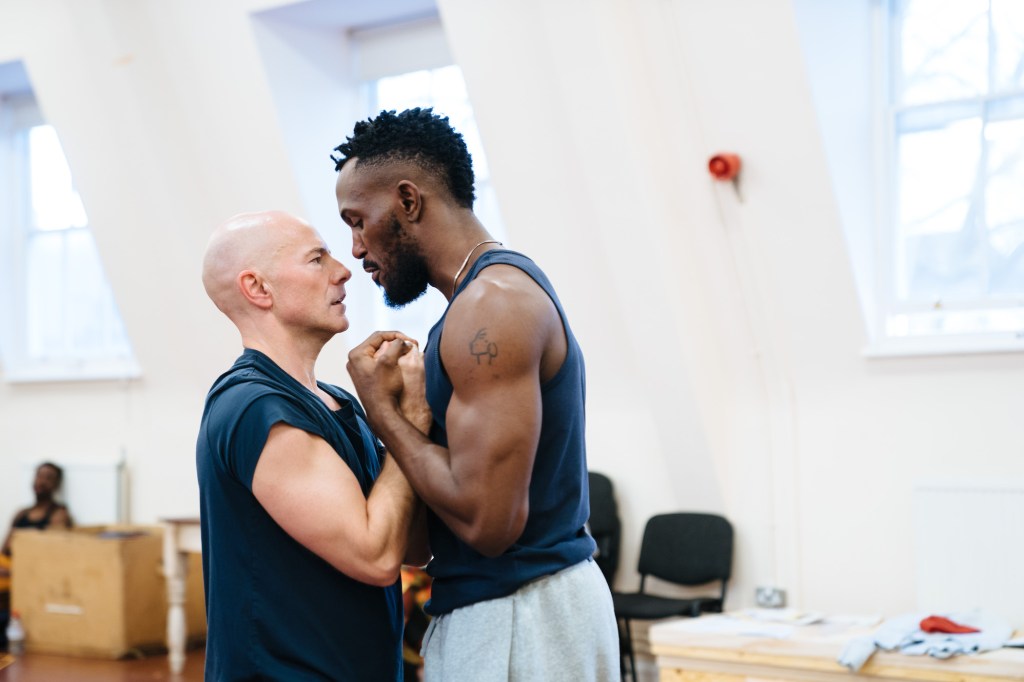The probably queer English king you’ve probably never heard of

The Royal Shakespeare Company has launched a new production of Christopher Marlow’s Edward II. (Seamus Ryan)
The Royal Shakespeare Company has launched a new production of Christopher Marlow's Edward II. (Seamus Ryan)
The Royal Shakespeare Company (RSC) is staging Christopher Marlowe’s play about a Medieval king who chose queer love over his kingdom. Edward II, the first English king to be deposed, reigned from 1307-1327 and gained notoriety for bestowing excessive amounts of power on his favourite, one Piers Gaveston.
Historically, a number of academics have attempted to paint Edward and Gaveston’s relationship as a bromance, however in more recent years historians have been increasingly transparent about the likelihood the two were actually engaged in a romance. After all, one medieval chronicle described Edward’s love for Gaveston as ‘beyond measure’, while another oh-so-subtly remarked that Edward ‘particularly delighted in the vice of sodomy’… sounds pretty gay to me.
The Elizabethan playwright who brought this queer history to the stage, and made it even more queer, was (cue shocked gasps) probably queer himself. It was rumoured throughout Elizabeth I’s England that Christopher Marlowe was a heretic, a spy and a sodomite, which was almost as damning as being a heretic. Indeed, it was alleged that he had once proclaimed “all they that love not tobacco and boys are fools”.
While we can only speculate as to the sexuality of Christopher Marlowe, the queer themes in his Edward II are as easy to find as fragile masculinity at an Andrew Tate appreciation society meeting. In the play, Gaveston proclaims that the King’s ‘amorous’ invitation to return “Might have enforc’d me to have swum from France / And, like Leander, gasp’d upon the sand / So thou wouldst smile, and take me in thine arms.”

I don’t know about you but I have never talked of swimming across the entirety of the English channel for a friend. He also depicts Edward as constant sunlight, ‘What need the arctic people love star-light, / To whom the sun shines both by day and night?’.
Likewise, upon being reunited with Gaveston, Edward is similarly very demure and very mindful, declaring: ‘Kiss not my hand: / Embrace me, Gaveston, as I do thee.’ That’s how we all talk to our friends who we definitely don’t fancy and have absolutely never been romantically involved with, right? It is no wonder that Edward’s wife’s is so envious, remarking that her husband no longer ‘regards’ her:
“But dotes upon the love of Gaveston: He claps his cheeks, and hangs about his neck / Smiles in his face, and whispers in his ears.”
Edward and Piers are ‘gal pals’ in the same way that Virginia Woolf and Vita Sackville-West were just ‘besties’, and roommates/ life-companions in the sense that Modern Family’s Mitch and Cam are. The two men even exchange jewellery, gifting the other each’s portrait miniature, worn as a locket, a promise to each other that recalls wedding rings.
As Daniel Evans, who will star as the eponymous Edward II in the RSC prodution, notes: “It is crazy to think that this play was performed in 1593, because it is just so openly queer”.

Despite the overwhelmingly obvious romance between these two, both in history and previous productions of Marlowe’s play, this has often been played down – not so in the RSC’s upcoming production of Edward II, which runs at the Swan Theatre in Stratford-Upon-Avon until 5 April.
Speaking to PinkNews, the show’s director, Daniel Raggett, notes that often “the love between” Edward and II and Piers Gaveston is presented in a “reductive way”, made purely sexual, which he observes is a prejudiced “trope in [male] homosexual relationships”. This kind of queer erasure, which centres on promoting harmful stereotypes rather than an authentic spectrum of queer relationships, is an act eerily reminiscent of the current political climate. Indeed, Raggett refers to the playwright as “consciously political”.
As Evans, who is also co-artistic director of the RSC, stresses: “We like to think we’re incredibly liberal, but obviously homophobia still exists and the play is full of homophobic slurs.” Such prevailing homophobia can be seen in, as Evans pointed out, the backlash over the play’s poster and trailer, which depicts Edward and Gaveston kissing.

Raggett says his “instinct” is that the two men “kissing on stage is going to provoke more of a response than when” various characters in the play “all stab each other”. In a similar vein, Raggett is curious as to whether the audience will find “the extreme violence in the play or the idea of two men in love” more confrontational.
Rather serendipitously (or nightmarishly), my discussion with both Daniels takes place on the day of Trump’s inauguration in January, and it was difficult not to ponder how LGBTQ+ rights may be worse off by the time the play’s run ends. Evans says he heard one of the new President’s first executive orders would be banning “woke education”. He shares that such censorship of what students can and cannot read in school reminded him of growing up in the 1980s under Thatcher’s section 28: “It makes you think, wow: we’re going back there again”.
Indeed, since coming back into power Trump has issued a number of executive orders which directly affect LGBTQ+ individuals, such as dismantling Diversity, Equality, Inclusion (DEI) across sectors, including various institutions such as universities receiving a list of now “banned words” that directly try to erase the queer community. Such censorship is not dissimilar to the historical playing down of Edward II’s queerness in both history and in Marlowe’s adaptation.

Raggett emphasises the importance of remembering that this “is a play about a king who happens to be queer”. Raggett’s point is that it is reductive to focus solely on Edward’s sexuality, but rather to focus on the kaleidoscopic tapestry of human experience in the play- how love, hate, rage, heartbreak, and violence, intertwine to build a much bigger picture.
Of course, half a millennium after the play was first performed we find ourselves in the throes of a society which seems to be regressing and, above all, this play stresses that queerness has always been, always needed to be and still is, arguably more than ever, a protest.
Edward II runs at the RSC’ Swan Theatre, Stratford-upon-Avon until 5 April. You can find more information and get tickets here.

